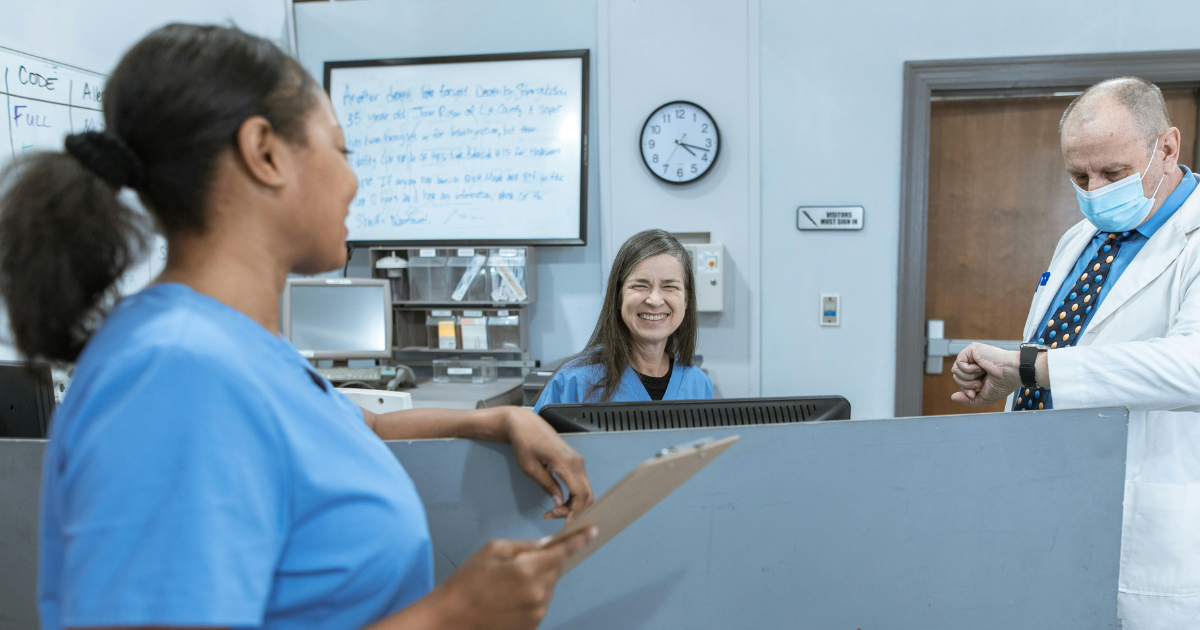5 Best Therapies for Treating Alcohol and Drug Addiction
- Last Updated:

Addiction is a chronic illness that affects so many millions worldwide. Treatment is key to seeking the right help, be it for alcohol, drugs, or both. The definition of evidence-based addiction treatments includes any interventions that are based on sound scientific research and proven to treat addictions effectively. In this blog, we will discuss the 5 best therapies for addiction treatment modalities and what the best therapies are for treating alcohol and drug use.
Introduction to Addiction Treatment
Treatment for addiction is a comprehensive process of professional care, organized group work, and personal work. The purpose is to empower individuals so that they can be free from captivity on substances and start creating their lives sustainably. While specific alcohol and drug recovery methods differ due to the personal, unique parameters of each person, all successful treatments.
Over time, the fields of addiction treatment have developed in many ways. The current most effective therapies are based on scientific research and evidence to have a positive long-term effect. These therapies are aimed at both the physical and psychological roots of addiction, dealing with the source of substance use disorders and providing choices for a life detached from addiction.
Understanding Alcohol and Drug Recovery Methods
The path to recovery from alcohol and drug addiction is complicated, and numerous methods have therapeutic interventions. There are alcohol and drug recovery methods to help us come off the physical-psychological power of addiction.
The initial step in recovery may be detoxification, but for real change, therapy and support must be included. Evidence-informed treatments aim to treat the underlying psychological drivers that drive addiction. They can be listed in different approaches, such as:
- Cognitive Behavioral Therapy (CBT). This is aimed at unhealthy thought patterns and behaviors
- Group Therapy. Get support from peers who are going through similar things.
- Holistic Therapy. Encompasses the entire physical, mental, and spiritual side of healing.
- Dual Diagnosis Treatment. Treats the addiction and the co-occurring mental illnesses at the same time.
- Rehab Centers. Treats a person as an individual to provide customized care.
Together, these therapeutic modalities provide the building blocks for individuals’ sustained recovery and relapse prevention.
- Cognitive-Behavioral Therapy for Addiction
Cognitive Behavioral Therapy is one of the most commonly used as well as highly effective treatments for addiction. It helps to identify and modify the negative thoughts that sustain their substance use. CBT is based on teaching individuals who attend the program other healthier ways to think and behave, promoting better emotional health coping skills.
How CBT Helps Modify Harmful Thought Patterns
CBT is a technique that is grounded in the ideology that thoughts influence emotions, and emotions will drive behavior. Following CBT, people are challenged to
- Cognitive Challenging. Cognitive restructuring helps people spot these thoughts and replace them with healthier ones.
- Learn New Coping Skills. With CBT, the tools learned help cope with stress and urges or triggers through which those alcohol- and drug-free.
- Less Relapse. Individuals can prevent triggers and stay sober by recognizing the thought patterns that motivate addiction.
One of the key goals of CBT in substance use disorders is to change cognitive patterns (behavioral therapy), which attacks structures of maladaptive thinking that perpetuate addictive behaviors.

- Group Therapy for Addiction Recovery
Group therapy addiction recovery offers structure and support for individuals to share their pain, successes, and lives with others battling the same disease. This is a therapy that highlights the power of peer support and the strength found in the community for those in recovery from addiction.
The Role of Peer Support in Recovery
| Benefits | Description |
| Emotional Support | Group therapy provides a sense of belonging and support to people who are going through similar challenges. |
| Accountability | It will be hard for a client to disregard treatment goals since they are answerable to the therapy center and their peers. |
| Shared Learning | Clients will have new tools for recovery by listening to problems presented and proposing solutions that have been effective for the clients in the past. |
| Reduced Isolation | Decline friends’ and family’s support leads to the use of drugs in most cases, and opposing the return is challenging. Thus, group therapy makes the person feel less lonely. |
| Active People and Passive Treatment | Members of a substance abuse counseling group receive advice and encouragement from others in the same stage of recovery, as well as professionals. |
- Holistic Addiction Therapy
A holistic approach to addiction therapy works with the mind, body, and spirit. It not only addresses the addiction’s psychological roots but also looks at all components of a person’s health. It combines holistic approaches that encourage healing alternatives to restore balance and work for integrative health to support long-term recovery.
Alternative Therapies: Meditation, Yoga, and Acupuncture
Popular holistic addiction therapies include:
- Meditation. This allows individuals to learn mindfulness, decrease stress, and improve emotional stability. Often used to ease the cravings and negative feelings that go hand in hand with addiction, meditation.
- Yoga. Yoga is a complete method that includes postures, breathing work, and meditation to encourage overall wellness and alleviate anxiety. It empowers people to reconnect with their bodies, rest from stress, and be at peace.
- Acupuncture. A widespread form of traditional Chinese medicine that uses thin needles placed at specific points on the body. It has been found to decrease cravings and detox from the body, which can be very helpful when detoxing from addiction for some.
A holistic approach to addiction therapy is based on affecting both the emotional, mental, and physical vacuum of addiction, which ultimately heals from within.
- Dual Diagnosis and Addiction Therapy
Co-occurring mental health disorders (depression, anxiety, or PTSD) are also common among individuals with addiction. This interdisciplinary treatment approach of dual diagnosis and addiction therapy treats mental health issues and substance use disorders. Substance use disorder and mental disorder: Critically crucial for people with both mental illnesses, substance use disorder requires treatment of both complaints to be successful.
Addressing Mental Health and Substance Abuse Together
| Dual-Diagnosis Treatment Component | Explanation |
Comprehensive Evaluation | From addiction to mental health, each disorder is evaluated to draft a unified treatment plan. Keeping with comprehensive evaluations results in a complete treatment. |
| Medication Management | It involves the prescription of medicines that will manage symptoms arising from both the mental health disorder and the addiction problem. |
Psychotherapy | This type of therapy works towards treating both the problems of substance abuse and mental health through techniques like rusher therapy, CBT, or DBT. |
| Long-Term Support | This could involve outpatient therapy and support groups where the family is engaged in a sustainable recovery. |
| Improved Outcomes | Dual diagnosis improves outcomes and helps prevent possible relapse. |
- Effective Addiction Treatment Programs
For the ongoing treatment of individuals with personalized care, effective addiction treatment programs are critical. The programs incorporated many evidence-based therapies to treat the physical, emotional, and spiritual pieces of addiction.
Choosing the Right Approach for Long-Term Recovery
For an addict who wants to succeed in recovery, choosing the best therapies for addiction treatment programs is key. Personal care recognizes that every person’s addiction is going to be different and requires a specialized plan in the comprehensive treatment program. It must have many therapeutic paths as well, incorporating CBT, group treatment, holistic means, and dual diagnosis treatment not only to mitigate the root of the addiction but also to manage mental health co-morbidities.

In addition, for long-term success, supportive care must include ongoing interventions (aftercare programs), counseling for substance abuse, and referrals to local resources. It aims to offer a templated but scalable framework for all facets of addiction so that people are left with the best shot to maintain their recovery.
Finding the Best Therapy for Recovery
Effective treatments for addiction are individualized, research-based, and holistic. Any possible therapy that you might be thinking about, whether drug addiction cognitive-behavioral therapy, addiction group therapy, or dual diagnosis treatment. A practical approach will depend on your case. Combining multiple therapies helps individuals to develop skills that will later help them for lifelong recovery and take control of their lives.
FAQs
- Can we learn about some practical applications of CBTs in addiction therapy?
Cognitive-behavioral therapy is designed to help people recognize the addiction and the negative thought patterns associated with it. By modifying these destructive thought processes, CBT encourages positive behavior and helps regulate emotions. The therapy is very effective in the treatment of addiction, and more so after the treatment, such that relapse does not occur.
- How does group therapy help during addiction recovery?
Group therapy is available for those who face people fighting some of the same things they do, which can cause an emotional community and a feeling of loneliness. It adds accountability when members hold each other accountable and keep pressing on their recovery objectives. This shared experience helps build a sense of community, making recovery possible and maintainable.
- What is holistic addiction therapy?
Holistic addiction therapy ensures healing covers all aspects of a person’s mind, body, and spirit, incorporating therapies like yoga group therapy. It also involves using various new approaches, such as visualization therapy and acupuncture. These achievements are considered complementary due to a positive recovery from the perspective of the traditional way of treating addiction. Indeed, it does not focus only on alleviation and treatment but also on rehabilitation of all kinds.
- What is dual diagnosis treatment?
Any dual diagnosis treatment is a particular sort of therapy and treatment that addresses both addiction and co-occurring mental health disorders. This is much more than a system of care since the patient is presented with the intervention to assist in helping both problems. Involving the two conditions during treatment helps to reduce the chances of relapse and continuing personalized recovery.
- How do I choose the best addiction treatment program?
The best therapies for addiction treatment programs suitable for the individual are those that give attention to that particular individual’s needs. It is necessary to include, e.g., cognitive-behavioral therapy, group therapy, and other alternative medicine practices such as acupressure or healing massage. Continuous care from the family, as well as the community and continuing or aftercare, is highly essential due to the chronically relapsing nature of substance abuse and any form of addiction.
More To Explore
Help Is Here
providing quality, ethical services for the treatment of alcoholism, addiction, and mental health.
Copyright © 2024 – Visalia Recovery Center


